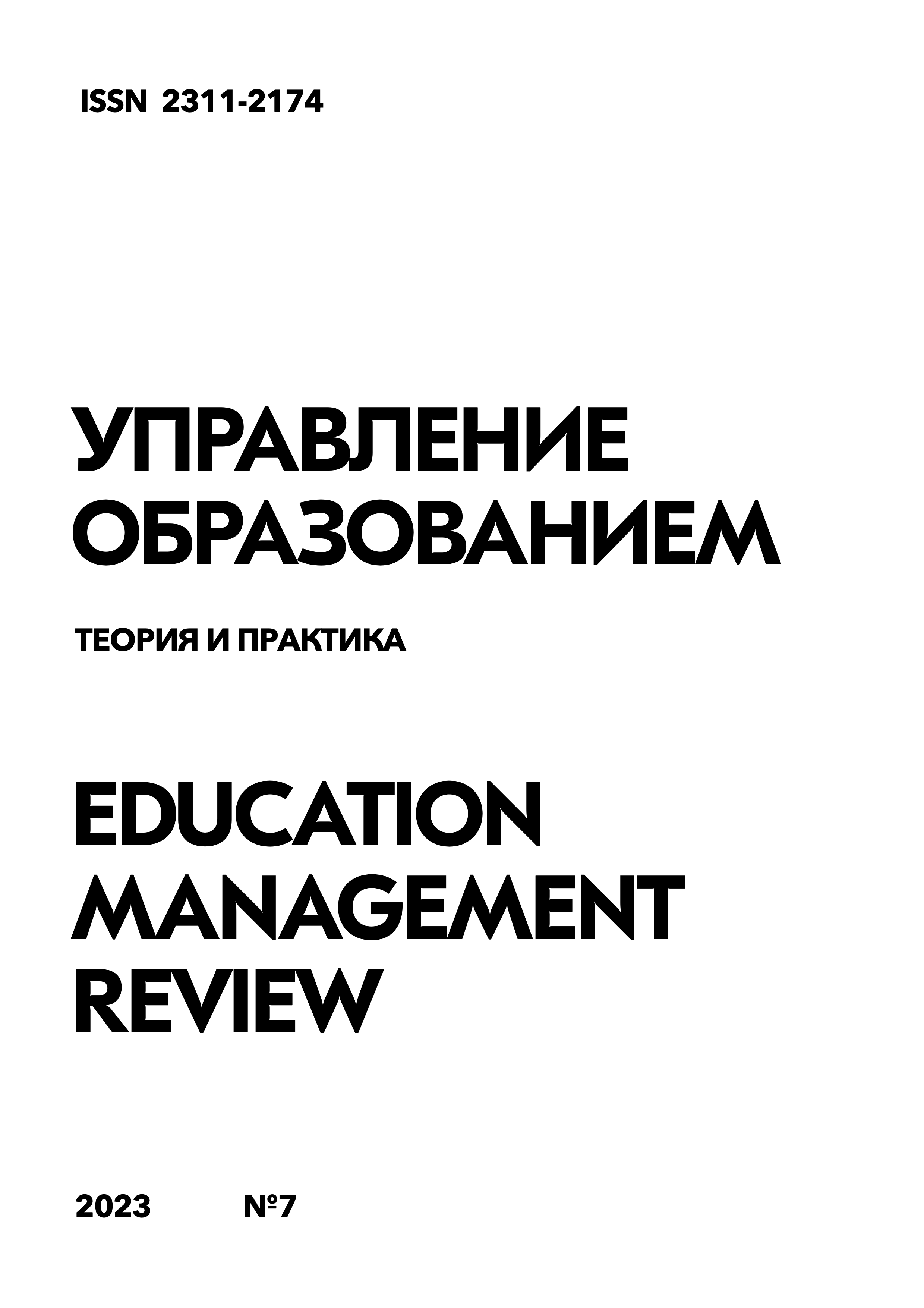Immersive technologies in the conditions of education digitalization as an innovative learning method
DOI:
https://doi.org/10.25726/q8075-5892-1140-mKeywords:
immersive technologies, innovative methods, digitalization of education, educational projects, digital resources, virtual realityAbstract
With the advent of the Internet and the concept of virtual reality, education has undergone significant changes that have affected both teaching methods and technologies in the educational process and the approach to teaching in educational institutions. The relevance of the article is due to the development of digital technologies, as well as the creation of a large number of various gaming and educational products, on the one hand, and on the other hand, the task of increasing the effectiveness of teaching modern education. This article discusses virtual reality technologies as innovative teaching methods, their use in modern education in the context of digitalization of education. The conditions for ensuring the use of immersive technologies within the educational environment were considered, with elements of a competence-oriented model of personalization of the educational process. The practical part of the study is aimed at identifying the features of immersive technology in education, as an educational product developed on the basis of virtual and augmented reality technologies, in order to describe the advantages and main ways to transfer the potential of this technology. The research methods that formed the basis of this work included the method of analyzing theoretical sources, collecting relevant data related to the use of immersive technologies in modern conditions of digitalization of education, their description and observation of their implementation in the modern educational environment. The methodological approach included the principles of an integrative approach using a comparative-analytical method. The practical significance lies in the possibility of using the proposed conclusions for the introduction of immersive learning technologies in education.
References
Азевич А.И. Модели использования иммерсивных технологий обучения в деятельности учителя информатики // Вестник Российского университета дружбы народов. Сер. Информация образования. 2021. Т. 18. № 2. С. 152-161.
Войкунский А.Е., Меньшикова Г.Я. О применении систем виртуальной реальности в психологии // Вестник Московского государственного университета. Серия «Психология». 2008. № 1. С. 22-36.
Где используют VR: от детского образования до промышленной безопасности // Электронное издание об образовании, профессиональном и карьерном росте «медиа Нетологии» от 09.12.2019. https://netology.ru/blog/12-2019-vr-in-business
Голяев С.С., Голяева Н.В., Теоретические аспекты цифровой трансформации образовательной среды // Среднее профессиональное образование. 2022. № 5 (321). С. 37-39.
Гончаров О., Момот М. Полное погружение: как иммерсивное обучение приходит в компании и школы // РБК от 05.09.2019. https://trends.rbc.ru/trends/education/5d6fb3449a794781b981b437
Зайнуллина М.Р., Морозова Я.И. Использование виртуальной, дополненной и смешанной реальности в образовании // Научные труды Центра перспективных экономических исследований. 2020. № 19. С. 62-67.
Иванова А.В. Технологии виртуальной и дополнительной реальности: возможности и препятствия применения // Стратегические решения и риск-менеджмент. 2018. № 3 (108). С.88-107.
Корнилов Ю.В., Попов А.А. К вопросу о терминологии и классификации иммерсивных технологий в образовании // Проблемы современного педагогического образования. 2020. № 68 (2). С. 171-174.
Левченко В.В., Пеньковская И.И., Ушакова Е.В., Чистякова Н.А. Методика развития конкурентоспособности и практикоориентированности студентов вуза в процессе освоения гуманитарных дисциплин // Вопросы истории. 2023. № 4-2. С. 262-273. DOI 10.31166/VoprosyIstorii202304Statyi50.
Малий Д.В., Медведев П.Н., Маркова М.Г. Профилактика игровой компьютерной увлеченности школьников младших классов // Историческая и социально-образовательная мысль. 2018. Т. 10. № 5/2. С. 135-140.
Малова Ю.А., Дьякова Е.А. Оценка возможностей использования иммерсивных 3d технологий в образовании // Инновационные научные исследования, 2021 № 2-3 (4), 23–33. doi: 10.5281/zenodo.4604767
Муравьева А.А., Олейникова О.Н. Цифровизация высшего образования: возможные пути развития // Философия образования. 2021. Т. 21. № 4. С. 5-18.
Сергеев С. Ф. Виртуальные тренажеры: проблемы теории и методологии проектирования // Биотехносфера. 2010. №2 (8). С. 15-20.
Федеральный проект «Цифровая образовательная среда» от 02.12.2019. URL: https://edu.gov.ru/national-project/ (дата обращения: 22.05.2023).
Хозе Е.Г. Виртуальная реальность и образование // Современная зарубежная психология. 2021. Том 10 № 3 С. 68-78. doi: 10.17759/jmfp.2021000002
Aczél Petra: "Virtuális valóság az oktatásban – Ment-e a VR által az oktatás elébb?", Információs Társadalom, XVII. évf. (2017). 4 szám, 7–24. old. doi: 10.22503/inftars.XVII.2017.4.1
Agibova, I.M. Fundamental education in university in development of future teachers' professional competences // European Proceedings of Social & Behavioural Sciences. 2019. Volume LXXVIII - IFTE. Pp. 249-259. doi: 10.15405/epsbs.2020.01.31.
Anikina V.G., Khoze E.G., Strizhova I.V. Dynamics of Mental States of Learners Working with Didactic VR Programs Using Virtual Reality Technologies. Eksperimental'naâ psihologiâ = Experimental Psychology (Russia), 2021. Vol. 14, no. 4, Pp. 123–141. doi: 10.17759/exppsy.2021140407. (In Russ., аbstr. in Engl.).
Azevich A.I. Virtual reality: educational and methodological aspects (Виртуальная реальность: учебно-методические аспекты) (in Engl.) // Вестник Российского университета дружбы народов. Серия «Информатизация образования». 2019. Т. 16. № 4. С. 338-350.
Baeva L.V. et al. Digital turn in russian education: from problems to possibilities // Tsennosti i Smysly. 2020. Vol. 5. № 69. P. 28–44. doi: 10.24411/2071-6427-2020–10043
Belch D. Disrupting LD with immersive learning [Электронный ресурс] / D. Belch // Training Industry. Mar/Apr 2019. URL: https://trainingindustry.com/magazine/mar-apr2019/disrupting-ld-with-immersivelearning/ (дата обращения: 23.05.2023).
Calvet L., Bourdin P., Prados F. Immersive technologies in higher education: Applications, challenges, and good practices // ACM International Conference Proceeding Series, 2019. P. 95–99. doi: 10.1145/3371647.3371667
Dede C. Immersive Interfaces for Engagement and Learning // Science. 2009. Vol. 323, № 5910 P. 66–69. doi: 10.1126/science.1167311
Gisler J. et al. Work-in-Progress-enhancing training in virtual reality with hand tracking and a real tool // Proceedings of 2021 7th International Conference of the Immersive Learning Research Network, iLRN 2021. 2021. doi: 10.23919/ iLRN52045.2021.9459332
Hancock P.A., Hoffman R.R. Keeping up with intelligent technology // IEEE Intelligent Systems. 2015 Vol. 30. № 1. P. 62–65. doi: 10.1109/MIS.2015.13
Kornilov Y.V. Immersive approach in education. // Azimuth of Scientific Research: Pedagogy and Psychology. 2019. Vol. 8 P. 174–178. doi: 10.26140/anip-2019-0801-0043




